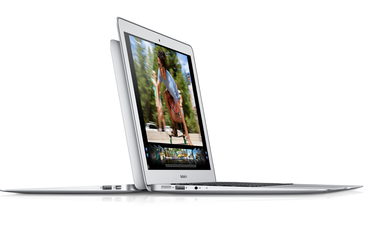
Apple is growing increasingly confident that its own chip designs will be used to replace Intel processors in its Mac personal computers.
Apple engineers, who began using Intel chips for Macs in 2005, believe that the ARM-based microprocessors that Apple uses in its iPhone and iPad today will soon be powerful enough to run its desktops and laptops, Bloomberg reports.
Further reading
Apple avoids billions in taxes outside US Apple iOS chief Scott Forstall to depart company after Maps gaffe iPad's share of tablet market drops to 50 per cent
Apple acquired PA Semiconductor in 2008 to help it develop its own line of microprocessors, ostensibly to improve its mobile products. PA Semi had been founded in 2003 by the highly regarded team behind DEC's Alpha processor, as well as the StrongARM line of ARM-based microprocessors, which were acquired by Intel in the late-1990s and renamed Xscale.
However, sources think an imminent switch unlikely – certainly not in the next few years.
A week ago, Apple announced that two senior executives were to leave the company, while existing staff added their responsibilities to their roles.
This included Bob Mansfield, who was to lead a new "technologies" group, which Apple said would combine all of its wireless teams into one organisation. This would "also include the semiconductor teams, who have ambitious plans for the future", claimed Apple in a statement.
But although the statement could be construed as a sign that Apple may be looking to remove Intel from its future Macs, sources say that no final decision has been made.
If Apple decided to move away from the chip maker, then it could spell trouble for Intel, as it is already dealing with a decline in Windows PC sales and has struggled to assert itself within mobile computing.
Intel dominates the market for PC, laptop and server microprocessors, while ARM has sominates in mobile devices. Should Apple decide to part ways with Intel it could set a trend among other vendors to do the same.
Last month, Amazon was reported to be venturing into the mobile chip arena with the acquisition of the mobile chip arm of semiconductor firm Texas Instruments. Amazon's Kindle Fire Tablet is powered by an ARM-based microprocessor made by Texas Instruments.
Consumer rivals Apple and Samsung already design their own microprocessors for their respective mobile products.
Intel is also facing nascent competition from ARM in the server market, with a number of start-ups, and its great rival AMD, planning low-power consumption servers based on ARM designs rather than Intel and x86.
One company that is using Intel, though, is Google-owned Motorola for its latest smartphone, the RAZR I. Motorola claims that it is the first smartphone that can achieve clock speeds of up to 2.0GHz due to its Intel Atom processor.





